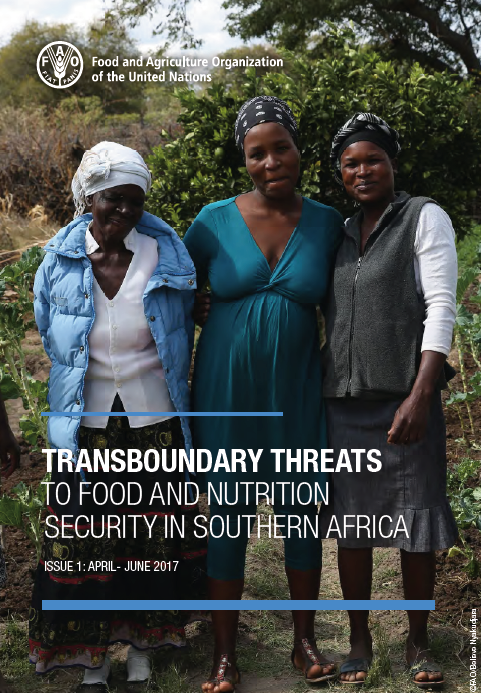Focal point
Location
The Food and Agriculture Organization of the United Nations leads international efforts to defeat hunger. Serving both developed and developing countries, FAO acts as a neutral forum where all nations meet as equals to negotiate agreements and debate policy. FAO is also a source of knowledge and information. We help developing countries and countries in transition modernize and improve agriculture, forestry and fisheries practices and ensure good nutrition for all. Since our founding in 1945, we have focused special attention on developing rural areas, home to 70 percent of the world's poor and hungry people.
Members:
Resources
Displaying 641 - 645 of 5073Consultative Meeting on Mechanization Strategy
Sustainable agricultural mechanization (SAM) is an essential input for the development of the smallholder farm sector in sub-Saharan Africa (SSA). The benefits of SAM range from drudgery reduction to improved timeliness of agricultural operations, increased input use efficiency, facilitating sustainable production intensification, ensuring environmental protection, and contributing to make agriculture more ‘climate-smart’. SAM is also important at other levels of the food supply system, for example in post-harvest operations, processing, marketing and transportation.
FAO and the SDGs
On 25 September 2015, the 193 Member States of the United Nations adopted the 2030 Agenda for Sustainable Development – including 17 Sustainable Development Goals (SDGs) and 169 targets – committing the international community to end poverty and hunger and achieve sustainable development between 2016 and 2030. Six months later, a global indicator framework for the SDGs – comprising 230 indicators - was identified to monitor the 169 targets and track progress, becoming the foundation of the SDGs’ accountability structure.
Linking community-based animal services
The Abyei Administrative Area (AAA) is a contested zone located on the central border between South Sudan and Sudan. Its status has remained unresolved since South Sudan seceded from Sudan in 2011, and the governments failed to agree on the border division. A United Nations peacekeeping mission, the United Nations Interim Security Force for Abyei (UNISFA), has since monitored the situation. It is entrusted with overseeing demilitarisation and maintaining security in the area.
Transboundary threats to food and nutrition security in Southern Africa
Welcome to this inaugural issue of a quarterly Bulletin that highlights outbreaks of transboundary pests and diseases that have the potential to impact food and nutrition security in southern Africa. The Bulletin also captures recently concluded and upcoming events that are being organized by Food and Agriculture Organization of the United Nations (FAO) and stakeholders to improve the capacities of partners in preparedness and response to crop and livestock emergencies in the
region.
Farmers improve food and nutritional security through agroecology in Mozambique
For over a decade ActionAid Mozambique (AAMoz) has worked with strategic partner organisations in the south and north-east of the country to promote agroecology initiatives with 80 farmers’ associations consisting of over 8000 farmers. 96% of the members are women and 30% of them young people, cultivating an average of 90.9 hectares per association and striving to improve agricultural production.











